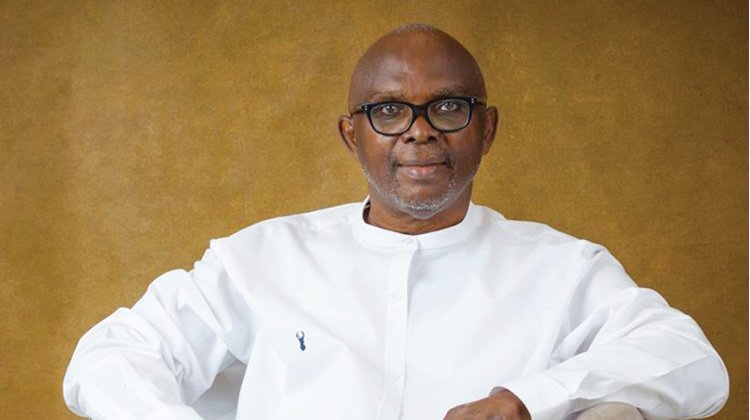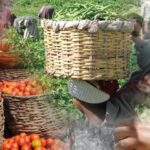
A veteran journalist and author, Mike Awoyinfa, tells KEHINDE AJOSE about his life at 70, journalism, and other issues
You were the Managing Director/Editor-in-Chief of Sun Newspaper at some point in your career. What was the experience like for you?
Before going to The Sun, I had written a book called ‘50 Nigerian Corporate Strategists’, where top Nigerian CEOs shared their experiences. I wrote it with my friend, the late Dimgba Igwe. We interviewed big names in the corporate world. There was no question we did not ask them, including management-oriented questions, how a business is run, and how they rose to the top of their careers. We also asked them what it takes to motivate Nigerians to work harder, as well as time management. It was a very revealing project. The book was sold for N10,000 then, and it was selling like hot cake. I was still with the Weekend Concord as the editor then.
Before them, we had also written a book titled, ‘The Art of Features Writing’. That was the book that opened the gateway for me and Dimgba. We met in Sunday Concord, in those years under Dele Giwa. He was the editor that mentored us. In those days, Sunday Concord was the place to be and we learnt a lot under Giwa. Everything we learnt as regards management was what I applied in The Sun. The strategy we used was that I allowed Dimgba, who was my deputy, to take full charge of the management. He was the disciplinarian and he had the talent to manage people. On the other hand, I was the dreamer, the ideas man, thinking of the future. I was also giving editorial leadership.
What were the challenges you had to deal with at Sun Newspapers?
It was the usual challenges of how to gain acceptability in the market place. One can pump all the money in the world into a product but if one does not get the branding right, one might not be able to make an impact. And, money will go down the drain. There are many newspapers that have died that lend credence to this. Even the name one gives a newspaper has to be based on strategies. When we started Sun, the owner, Orji Kalu, wanted a paper called ‘New Republic’. Based on our background and pedigree, we told him that if we had created a paper called ‘New Republic’, we won’t know how to sell it. Before then, there was a paper called ‘Republic’ which died a natural death.
We felt that calling a paper ‘New Republic’ was not strategic enough. We told him that we came from a tabloid background, so we should call the paper, ‘The Sun’. He said we could call it whatever we wanted. We then started and created the product drawing from our Weekend Concord experience. We knew that how one starts a product is very important. If one starts without a bang, it would be very hard for one to catch up. We made sure out first edition was a very powerful one.
What were some of the things you did back then to stand out?
As of that time, General Ibrahim Babangida (retd.), had not spoken on the June 12, 1993, election annulment. Luckily, the chairman of the company, Kalu, took us to Babangida. We sat down with him, and he bared his mind on Abacha and other related issues. The interview was published in the first edition of the paper. When it was published, it was a big bang. People were looking for it and asking, ‘Where is that paper Babangida spoke to’? Our branding too was good. We did a television jingle. We brought in a white man, Mr Allen, who was our technical director. In the jingle, he said, ‘Hi, do you remember them? This is Mike Awoyinfa and Dimgba Igwe. They used to be with Weekend Concord of those days. Now, they are starting The Sun based on the best tradition of British tabloid journalism. When people saw the white man, they thought we were from The Sun of London. The design was similar to that of The Sun of UK. People thought The Sun of UK had established a branch in Nigeria. That was one of the things that helped us. We also reached out to the singer, Orits Williki, who created another jingle for us. People loved it, and children were dancing to it.
What do you regard as your legacies in that position?
The fact that the newspaper has not died is a legacy for us. That means the foundation we built was very strong. It also means the training we gave then was very strong. The brand itself is strong, so the continuity and sustainability are there.
You are noted for crafting creative headlines. How were you able to hone that skill?
That was our selling point. One of the things that sell a newspaper is the ability to craft good headlines. Sometimes, one crafts it with words, and at other times, one uses pictures. One cannot exactly explain what makes a good headline. It’s a spiritual thing. It is a combination of many factors— words, ideas and creative thinking. For headlines, one should do what nobody is thinking about. It should be something that is exclusive, and that will last for a long time. Essentially, a headline that people will remember for long.
What were the memorable editions you produced as the Weekend Editor of the Concord Newspapers?
An example is when the late Alaafin of Oyo, Oba Lamidi Adeyemi, had problems with the immigration in the United Kingdom, and they found drugs on someone in his entourage. It became a big news. ‘Alaafin arrested in UK’ was the ordinary headline. But at Weekend Concord then, we did not believe in creating ordinary headlines. As the editor, I was in charge of crafting headlines. I did not delegate it to anybody in the production team, which is what they do in most papers. I was the chief headline writer. When that incident happened either on a Friday or Thursday, I asked someone to go to the library to ask for all the pictures of Alaafin that we had. In those days, there was no Internet. They brought all the pictures and I went through them. Suddenly, I saw one where Alaafin was laughing. Then, God dropped the idea in my brain. I was telling someone, ‘God is the number one headline caster’. He is the one that puts headlines in people’s brains. Even when I am sleeping, I think of headlines. The theory is that if one puts something in one’s mind all the time, one will get it right. That is the art of creative thinking. After seeing the picture of Alaafin laughing, I came up with the headline: ‘Drugs? Not Alaafin matter’.
Another example was when the late Gen Abdulkareem Adisa was arrested for plotting a coup. We put a picture of him on front page and a big screamer that said, ‘A disaster’. We did not need any elaboration. We just used a picture of him looking troubled. Knowing one’s market and knowing what to do is important. I recall that the publisher of Concord, MKO Abiola, used to commend me back then. He would say, ‘Mike? He knows what people want to read’. For me, that is the greatest compliment anyone can ever pay me; that I have a nose for news. Any editor should know what the readers want. That is the basic rule of marketing; give your customers what they want. That is what we applied to journalism. And, it worked for us. When we went to The Sun, we applied the same formula.
Can you recall the first edition of the Weekend Concord that you produced?
The first edition was a very memorable one which I cannot forget. I recall that we had our editorial meeting and Dele Momodu said he would go to interview Wole Soyinka’s ex-wife to find out why they broke up. He travelled, met the woman and struck up a rapport with her for a day or two. And, the woman gave a very great interview. The headline was, ‘My love life with Wole Soyinka’. It was a big story and it sold out. We made a huge impact to the point that Soyinka was very angry. What made him annoyed was the fact that he knew Dele Momodu very well. They had been in Ile Ife, Osun State, together. I was so happy that Soyinka was angry. That is because someone once said that news is a story that somebody somewhere does not want you to publish. That is the real definition of news. Any other thing is advertising.
What are your thoughts about journalism as it is currently practised?
Every generation thinks their own brand of journalism was better than the current one. The kind of team we had in Weekend Concord of those days was like the Super Eagles team that won the first Olympic gold medal. We had creative young men with ideas. We were ready to die to get stories. I don’t think that spirit is there any longer. These days, the facilities are there, including the Internet, but the reporters are not using it to leverage their reporting. It is unfortunate. These days, some journalists look for news through bloggers. Bloggers actually break news for some journalists in Nigeria. Meanwhile, those bloggers are not even trained journalists.
What advice do you have for young journalists?
I am not saying they should not use the Internet. Rather, they should use it positively to be able to fly high. They should tap into the advantages of the Internet. They should buy foreign newspapers to see how they are designed and how they are written. The Internet should be used as a tool for learning. As old as I am, I don’t sleep until 12am. Every night, I watch the news and take note of the kinds of headlines they cast. That kind of passion is missing. People should develop that kind of passion for journalism excellence.
Also, there should be more training. Media owners and managers should look for competent hands to train reporters. I believe there is still a vacuum in the Nigerian market. Anybody that understands journalism can easily bring in a new paper and it will succeed.
At 70, do you have any unfulfilled dreams?
I thank God because everything I wanted to be as a journalist, I have been. As the features editor in National Concord, I changed the orientation about feature writing, to let people know that a feature story is a good human angle story. It is about people. A feature should bring in things that will make people laugh, and also cry. It was based on the ‘revolution’ I brought that I was invited by the Managing Director of the company, Dr Doyin Abiola, to start the Weekend Concord. Whatever one does, people are watching one. There is no how one does well and one will not rise. There is nothing wrong with being ambitious. I was very ambitious. Early on, I decided that I wanted to get to the highest height of the profession. Editing the ‘Weekend Concord’ was one of my highest achievements. Right now, my dream is to be the number one biographer in Nigeria. I believe biography is a higher form of journalism. It involves asking the same questions—who, what, when, where, and why. I pray God continues to give me the mental alertness, strength, courage and enthusiasm to go out there and look for stories that I will keep on telling. At the end of the day, everything is about storytelling. I want to go to the grave with my brain empty.
Do you think printed newspapers could go extinct due to the proliferation of online journalism?
As a ‘chronic’ newspaper man, I can never believe that printed newspapers will die. I believe they will live forever. It is just like saying television or radio will die. These arguments keep coming up generations after generations. No matter what the competition is, newspapers will always be relevant. There is nothing like waking up early in the morning, drinking a cup of coffee and reading one’s newspapers. There is a sound that a printed newspaper makes that one cannot get on the Internet. I don’t pray that newspapers will ever die. As long as people are given what they want to read.
How do you keep fit?
I used to be a fanatical jogger. But with my sickness, I have not been able to continue my physical exercise. I pray to God to regain my health, so that I can continue my exercise. I actually exercise like a boxer.





